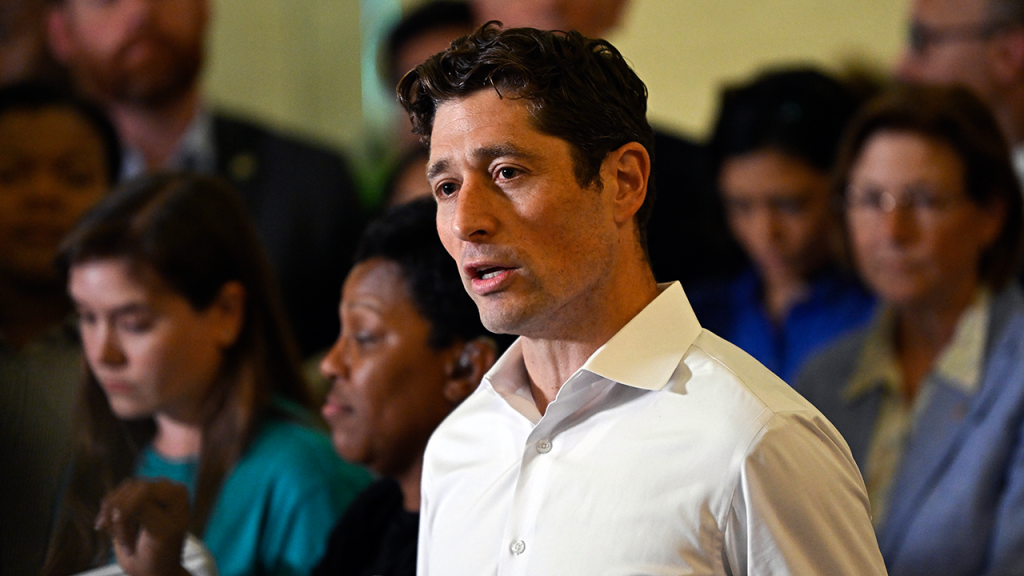Mayor Frey’s Somali Speech Sparks Debate on Cultural Inclusivity in Minneapolis
In a display of cultural acknowledgment that has ignited both support and criticism, recently re-elected Minneapolis Mayor Jacob Frey delivered portions of his victory speech in Somali, sparking a nationwide conversation about representation and inclusivity in American politics. The Democratic mayor, who narrowly defeated socialist state Senator Omar Fateh in a ranked-choice voting runoff, addressed a crowd of Somali residents with phrases in their native language and emphasized Minneapolis as a welcoming home for immigrants from various Somali regions. “To the great people of Minneapolis, and I say that very intentionally, because no matter where you are from, Minneapolis should be a place where you are proud to call home,” Frey declared, before specifically acknowledging people from Bosaso, Mogadishu, Hargeisa, Garowe, and Beledweyne. His message emphasized unity, stating that “this is our people, this is our city, we are united behind each other,” a sentiment that resonated with many in the diverse community that has established deep roots in Minneapolis.
The speech quickly became a flashpoint in America’s ongoing cultural debates, with conservative commentators and politicians expressing strong disapproval. Social media influencer Paul Szypula called the multilingual address “insane pandering,” while podcast host Matt Walsh suggested legislation requiring politicians to “speak English when addressing the public in an official capacity.” Other critics like Gerry Callahan characterized the mayor’s linguistic inclusivity as “prostrating himself in front of a bunch of foreigners,” and some commentators even called for increased immigration enforcement in the city. This backlash follows similar criticism Frey received in September for releasing a campaign ad in Somali, which prompted negative reactions from several Republican representatives including Chip Roy of Texas and Mike Collins of Georgia.
The controversy reflects Minneapolis’s unique political landscape, where Somali-American representation has grown significantly in recent years. The city is part of Representative Ilhan Omar’s district – she being one of the first Somali-Americans elected to Congress and a member of the progressive “Squad.” Omar had backed Frey’s opponent, Omar Fateh, who himself made history as the first Somali-American and first Muslim to serve in the Minnesota state senate. The election thus represented competing visions within the Democratic coalition, with Frey receiving endorsements from mainstream Democrats like Governor Tim Walz (Kamala Harris’s recent running mate) and Senator Amy Klobuchar, while Fateh enjoyed support from the Democratic Socialists of America’s Twin Cities chapter.
Mayor Frey, now entering his third term after first taking office in 2018, has previously courted controversy through his handling of racial justice issues in Minneapolis. He gained national attention during the 2020 Black Lives Matter protests following George Floyd’s death in police custody in Minneapolis, when he marched with demonstrators and was later seen kneeling and weeping at Floyd’s memorial service. These actions positioned him as a progressive leader on racial justice, though his approach to police reform and public safety has often placed him between competing political pressures in a city still healing from the unrest of 2020. His multilingual outreach to the Somali community appears consistent with his broader approach to inclusivity and representation, though critics suggest it crosses a line regarding expectations of cultural assimilation.
The reaction to Frey’s speech highlights a fundamental tension in American immigration discourse: whether political leaders should emphasize cultural integration or celebrate multicultural expression. For supporters, the mayor’s willingness to speak Somali represents appropriate recognition of a significant community within his constituency – Minneapolis has one of the largest Somali populations in the United States, with many residents having arrived as refugees from the civil war that began in the early 1990s. To these supporters, multilingual outreach demonstrates respect and inclusion, acknowledging the community’s contributions to the city’s cultural and economic life. Conversely, critics view such gestures as inappropriate departures from American political traditions, arguing that public officials should communicate exclusively in English regardless of their audience.
As Minneapolis continues to navigate its identity as a diverse, progressive city with deep political divisions, Mayor Frey’s speech stands as both a symbol of inclusion and a lightning rod for broader cultural debates. The controversy speaks to fundamental questions about how American communities integrate new populations while honoring their distinct cultural identities, and the appropriate role of political leaders in that process. While Minneapolis has pioneered policies welcoming to immigrants – including becoming the first major U.S. city to permit Muslim calls to prayer at all hours – these changes have not come without resistance. As the city moves forward under Frey’s continued leadership, these tensions between tradition and change, between assimilation and multiculturalism, will likely remain at the center of its political conversation, reflecting similar struggles taking place across American society.


